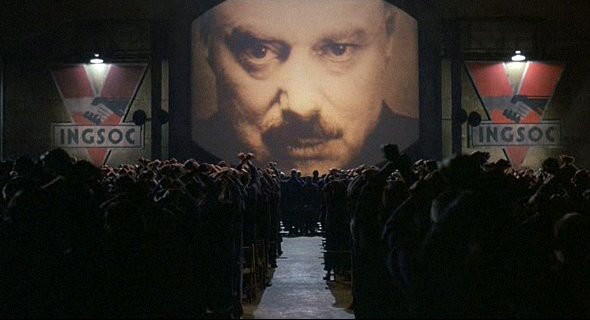From the “Foreward to 1984″ (1967):
“It would be a great mistake to assume that 1984 simply exhibits Communism to us like a monkey cage in a zoo, with the aim of making us feel more complacent about our superior liberties. The book shows us not a monkey cage but a mirror. Its society is the logical form of what a great many of us have already shown that we want. One of the things that most disgusted Orwell was the masochism of some of the intellectuals around him, who thought that any totalitarian government was better than democracy because it was more logical. Those who were pro-Communist ignored or explained away all the evidence that Stalin’s government was brutal, corrupt, and treacherous. In other words they were willing to rewrite history in terms of their own prejudices. The history incorporated into 1984 remarks that most of the intellectuals in the democracies had become authoritarian by 1940, and there is far too much truth in that statement. Or, again, take McCarthyism, something that grew up after Orwell’s book. I have read many letters in American papers defending McCarthy, and what most of them said in effect was: “Communism is such a danger that it doesn’t matter if his accusations are true or not; how are we going to feel protected unless somebody is constantly being denounced?” That attitude was exactly the attitude that makes Big Brother possible. Nobody wants to have the tortures and spying of that world applied to himself, but many of us would feel more comfortable if we knew that they were being applied to someone else who we could think of as dangerous. The fact that the world’s most powerful democracy let McCarthy get away with pure bluff year after year did not indicate a fear of losing freedom to Communism; what it indicated was a fear of freedom itself.” (CW 29, 281)

